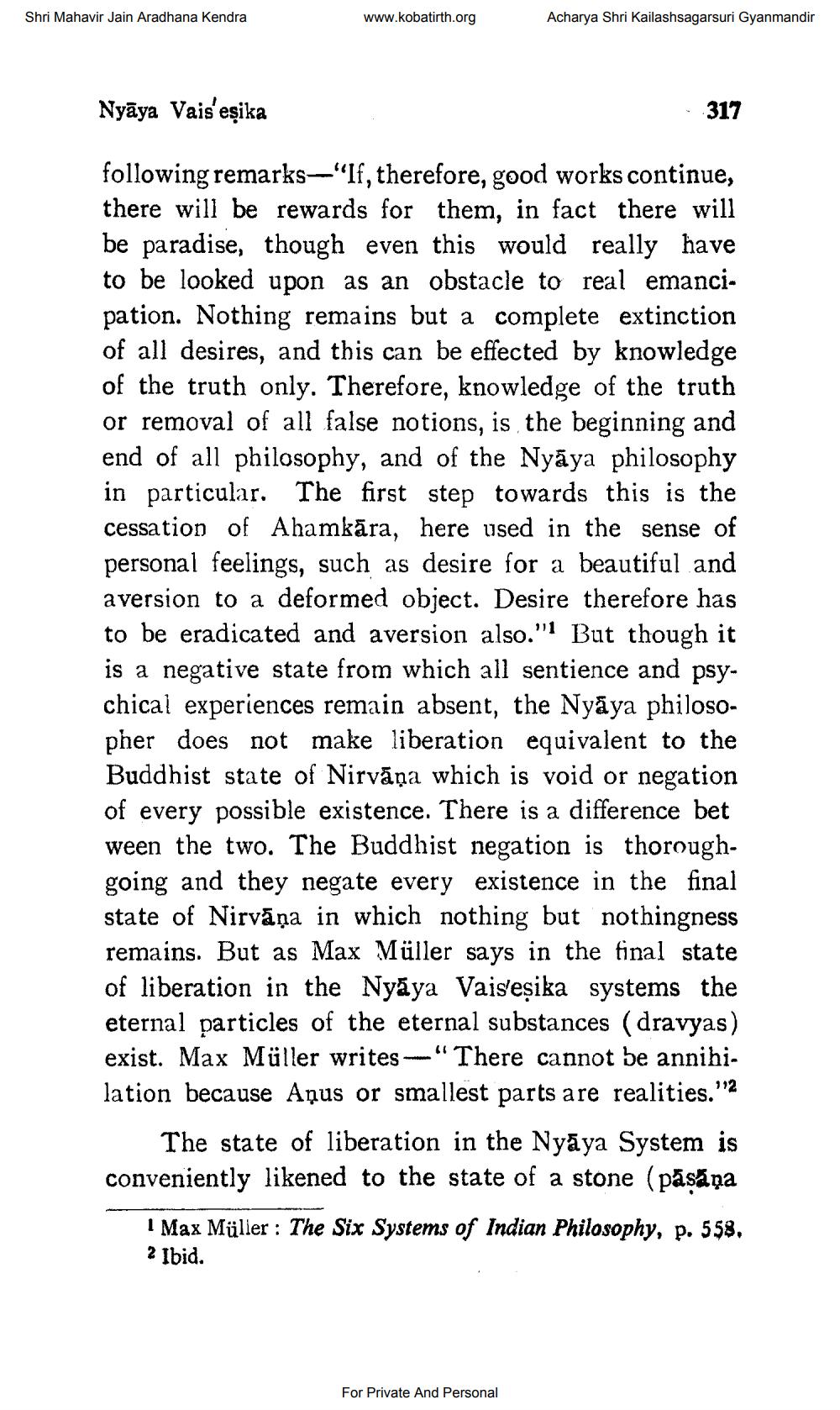________________
Shri Mahavir Jain Aradhana Kendra
www.kobatirth.org
Acharya Shri Kailashsagarsuri Gyanmandir
Nyaya Vais'eşika
following remarks-"If, therefore, good works continue, there will be rewards for them, in fact there will be paradise, though even this would really have to be looked upon as an obstacle to real emancipation. Nothing remains but a complete extinction of all desires, and this can be effected by knowledge of the truth only. Therefore, knowledge of the truth or removal of all false notions, is the beginning and end of all philosophy, and of the Nyaya philosophy in particular. The first step towards this is the cessation of Ahamkara, here used in the sense of personal feelings, such as desire for a beautiful and aversion to a deformed object. Desire therefore has to be eradicated and aversion also." But though it is a negative state from which all sentience and psychical experiences remain absent, the Nyaya philosopher does not make liberation equivalent to the Buddhist state of Nirvana which is void or negation of every possible existence. There is a difference bet ween the two. The Buddhist negation is thoroughgoing and they negate every existence in the final state of Nirvāņa in which nothing but nothingness remains. But as Max Müller says in the final state of liberation in the Nyaya Vais'eṣika systems the eternal particles of the eternal substances (dravyas) exist. Max Müller writes-"There cannot be annihilation because Aņus or smallest parts are realities."
317
For Private And Personal
112
The state of liberation in the Nyāya System is conveniently likened to the state of a stone (pāṣāņa
I Max Müller: The Six Systems of Indian Philosophy, p. 558. 2 Ibid.




